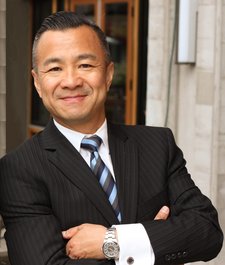
Aytekin Tank
Feb. 16, 2024
I dipped one toe in the water and a sharp pain shot through my system. Knowing that I'd never be able to ease my way in, I quickly slid the rest of my body into the freezing cold water. I took slow, deep breaths — experts say this signals to your brain that "I'm okay" and prevents you from going into flight or flight mode. But as my mind ran circles around the physical sensations, I felt anything but okay.
Then a funny thing happened: a minute passed, and it felt ever so slightly easier to stay in the water. Thirty seconds later, I emerged with a strange and surprisingly pleasant feeling of calm. I had survived my first cold plunge — and was already wondering when I'd do it again.

Getty Images
Cold plunging is just one example of biohacking . A term borrowed from the "tech hacker" ethos, it's the science of tweaking your physiology and nervous system for optimal performance. Some types of biohacking may seem extreme, exhibitionist even — like when someone plunges a syringe in their hand to inject themselves with a genome-altering substance. But there are also more subtle techniques that anyone can start using today; that I have incorporated into my routine to perform my role as CEO of Jotform to the best of my body's ability — without losing my mind. Here is a closer look at some of those techniques, plus why I've become a believer in biohacking.
Hacking your happiness
We all know the trope of the tortured artist. Implied is the idea that unhappiness is a requisite for creativity. That may be true in some cases. Kafka probably wouldn't have written Metamorphosis if he'd loved his day job. Bill Withers wouldn't have written "Ain't No Sunshine" if he wasn't heartbroken. But for me, and I imagine many others in the entrepreneurial world, I do my best problem-solving when my serotonin levels are high. When I'm calm, I can concentrate longer on more meaningful work — the kind of productivity that matters. I'm a better leader when I feel good.
For starters, I make a habit of proven mood-boosting behaviors, like regular cardiovascular exercise and eating a reasonably healthy diet . Balance is key. Case in point: A slice of pizza makes me happy, but half a pie leaves me unable to concentrate.
More recently, I'm increasingly convinced of the need to shock the body from time to time as a way to reset the system and boost my mood. Cold plunges, for example, have been shown to decrease inflammation, improve sleep and mood, reduce stress and cause a rush of endorphins and dopamine — the body's happy chemicals.
I also dabble in intermittent fasting, that is, eating only during a six-hour period each day. A study published in the New England Journal of Medicine showed various benefits of intermittent fasting: increased stress resistance, increased longevity and a decreased incidence of diseases like cancer and obesity. It also has been shown to sharpen your memory and thinking. Ernest Hemingway used to advise writing when you're hungry. While I can't write when I'm ravenous, I think more clearly when I'm not weighed down by a huge meal.
Silent meditation is another practice that helps to refresh my mind. It might not be possible to set off on a week-long silent retreat, but carving out space for complete quiet can reduce stress and spur creative thinking. Schedule a weekly meeting with yourself to switch your devices into silent mode, count your breaths and let your mind be still. Do your best to quiet both the inner and outer noise.
Getting a good night's sleep is an age-old problem — the earliest written record of insomnia dates back to ancient Greece in 350 B.C. Unsurprisingly, biohackers have myriad ideas for optimizing your sleep, from snoozing with hydrogen inhalers to wearing electrodes and more. Those techniques might work for some, but equally effective and more accessible are simple practices like stopping caffeine intake at least eight hours before you plan to sleep, limiting screen time at night, using a white noise machine and installing blackout curtains.
I've experimented with polyphasic sleeping — effectively slashing your nightly slumber to three hours and then taking a few 20-minute naps during the day — but found it unsustainable. After all, I have small children. I can't nap throughout the workday and pick them up from their after-school activities. Instead, I prioritize getting eight solid hours of shut-eye every night. I automate my sleep routine by programming quiet mode on my devices, and I do my best to not overly worry if I don't reach my sleep goals. Just because I have one bad sleep night does not mean I'll have a bad sleep week.
Final thoughts
Biohacking is the next frontier of performance optimization. Some of it may seem a bit like a sci-fi movie. Techniques like stem cell injections and IV transfusions aren't widely available, and what's more, they're not inexpensive. Indeed, one entrepreneur admitted to spending a million dollars on biohacking his health.
I stick to more moderate research-backed strategies for reducing stress, feeling happier and optimizing my sleep. As for the more extreme (a.k.a. uncomfortable) techniques, I practice them only occasionally. Like a cold plunge into ice-cold water, knowing that the discomfort will be brief and sporadic makes it much more doable.
Enjoy Entrepreneur Magazine on your terms. For just $10.99, get 1-year of the print edition delivered straight to your mailbox and 1-year instant access to the digital edition on your mobile device. Subscribe Now!
This Entrepreneur article was legally licensed by AdvisorStream


